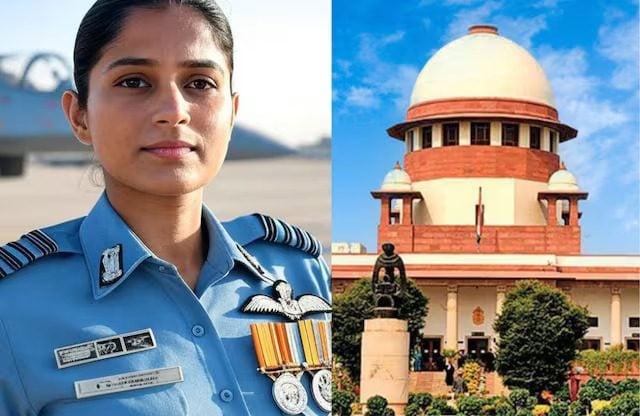Wing Commander Nikita Pandey, a distinguished officer in the Indian Air Force (IAF), is fighting a pivotal legal battle that underscores the broader struggle for gender equality within the armed forces. Since her commissioning through the Short Service Commission (SSC) in 2011, Pandey has been a vital player in high-stakes operations, including the notable Operation Balakot in 2019 and Operation Sindoor in 2025. As a skilled fighter controller, she has played a crucial role in air defense operations, particularly managing the Integrated Air Command and Control System (IACCS), essential for national security.
Despite her exemplary service record, Pandey was denied a Permanent Commission (PC), a decision attributed to a 2019 IAF policy that critics say systematically disadvantages women officers. This policy, which altered eligibility criteria for Permanent Commissions, effectively caps the careers of female officers on SSC after a set tenure, regardless of their qualifications or accomplishments. Such limitations are perceived as a reflection of entrenched systemic gender discrimination within the armed forces.
In light of her situation, her case has reached the Supreme Court of India, challenging the legality of the policy under various constitutional provisions, including Articles 14, 15, and 16, which address equality before the law, prohibition of discrimination based on gender, and guarantees of equal opportunity in public employment.
The timeline of events leading to the current legal proceedings highlights the administrative and judicial hurdles faced by Pandey. After being denied a PC, she filed her petition with the Supreme Court in May 2025. A stay on her scheduled release was granted by the court in June, coupled with strong remarks emphasizing the need to uplift morale amongst women serving in the forces.
During the hearings, the arguments presented by both sides were telling. Senior Advocate Menaka Guruswamy, representing Pandey, emphasized her ranking as the second nationally among air fighter controllers, asserting that her gender was a significant factor in her denial of a PC. She termed the 2019 policy as outdated and incompatible with modern military requirements. Conversely, the Centre and IAF, represented by Additional Solicitor General Aishwarya Bhati, argued that Pandey had not been recommended by the selection board and mentioned the steep hierarchies in defense services that necessitate periodic exits.
The Supreme Court’s interim order reflects a growing recognition of the issues at play. The justices not only stayed her release but also directed the IAF and the Ministry of Defence to reevaluate how SSC intake aligns with PC opportunities to facilitate a fairer merit-based promotion system.
Pandey’s story is emblematic of resilience within a male-dominated field. Though she has kept her public comments limited, her professional achievements are a testament to her dedication and skill. The ramifications of her legal battle extend beyond her personal circumstances; they pose critical questions around the systemic barriers still facing women in the armed forces.
The outcome of this case holds the potential to reshape policies affecting not only Pandey but also countless other women officers striving for equitable treatment in military service. The shifting public discourse emphasizes the need for reforms in human resource policies to uphold fairness and accessibility for all, irrespective of gender.
As the case proceeds, attention remains focused on the implications it carries for gender justice within one of the nation’s most prestigious institutions. The stakes are high—not just for Wing Commander Pandey, but for the very principles of equality and meritocracy that the armed services aspire to uphold.







